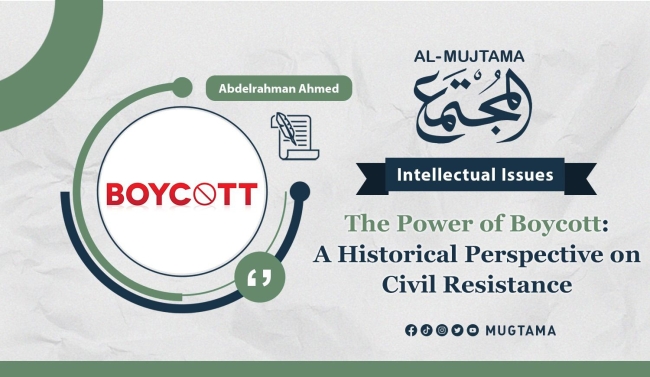The Power of Boycott: A Historical Perspective on Civil Resistance
Throughout history, the act of boycotting has emerged as a powerful tool of civil resistance, allowing people to express their dissent against unjust policies and practices. This form of protest has taken various shapes and has been employed by different groups across the globe to challenge oppressive systems and bring about social change. This essay explores the historical significance of boycotts as a popular means of protest, with a focus on notable examples such as the Civil Rights Movement in the United States, the anti-apartheid movement in South Africa, and the contemporary global boycotts against companies supporting Israel.
The Historical Roots of Boycott:
The concept of boycott first gained prominence in the late 19th century when Irish tenants, facing unjust rental policies from English land agents, collectively refused to rent land. This marked the inception of a powerful tool of protest, signaling to the world that people, united in purpose, could challenge oppressive practices through non-violent means. The term "boycott" itself originated from this Irish land agitation, as thousands of Irish tenants refused to engage with unfair leasing practices.
Boycotts in the Labor Movement:
Boycotts have long been employed by labor movements as a tactic to improve working conditions and wages. Organized labor used boycotts as a means to pressure management into meeting the demands of workers. In the late 19th and early 20th centuries, labor unions, facing harsh working conditions and inadequate compensation, utilized boycotts to negotiate better terms with employers. This strategic withholding of support from targeted industries or companies often led to improved wages and working conditions, showcasing the effectiveness of collective action.
Civil Rights Movement in the United States:
One of the most iconic examples of the power of boycotts in the quest for civil rights occurred during the mid-20th century in the United States. Rosa Parks, a woman of African descent, catalyzed a revolution when she refused to give up her bus seat to a white passenger in Montgomery, Alabama, in 1955. This act of defiance triggered the Montgomery Bus Boycott, a massive and coordinated effort by the African American community to boycott the city's bus services.
Led by figures like Martin Luther King Jr., the boycott lasted for over a year, causing severe financial losses to the bus company. The African American community demonstrated resilience by organizing carpools and walking long distances to avoid using the segregated buses. The success of the Montgomery Bus Boycott was not merely measured in economic terms but in the legal transformation it sparked. In 1956, the U.S. Supreme Court ruled that racial segregation on public buses was unconstitutional, marking a pivotal moment in the Civil Rights Movement.
Anti-Apartheid Movement in South Africa:
The anti-apartheid movement in South Africa, which spanned several decades, relied heavily on international boycotts to apply pressure on the apartheid regime. Starting in the late 1950s and continuing until the dismantling of apartheid in the early 1990s, the global community, especially in Western countries, actively participated in boycotts to protest racial segregation and discrimination in South Africa.
The movement gained momentum in the 1980s when activists called for the boycott of South African goods and companies operating in the country. Artists, athletes, and academics also joined the cultural boycott, refusing to engage with South African institutions. These international efforts significantly contributed to the isolation of the apartheid regime and amplified the global call for change.
Contemporary Boycotts and the BDS Movement:
In the 21st century, the Boycott, Divestment, and Sanctions (BDS) movement has gained traction as a response to the Zionist-Palestinian conflict. Launched in 2005 by Palestinian civil society organizations, the BDS movement calls for the boycott of Israeli goods, divestment from companies supporting the occupation, and sanctions against Israel until it complies with international law.
The BDS movement aims to hold Israel accountable for its treatment of Palestinians and its occupation of Palestinian territories. Activists around the world have targeted companies that contribute to the Israeli economy and support its military activities. Notable successes include the withdrawal of major corporations like Veolia and Orange from projects in the Zionist occupation.
The historical narrative of boycotts as a tool of civil resistance underscores their enduring power to challenge injustice and drive social change. From the early days of Irish land agitation to the present-day BDS movement, boycotts have proven effective in fostering economic, social, and political transformation. The examples of the Civil Rights Movement and the anti-apartheid movement serve as powerful reminders that collective, non-violent action can dismantle oppressive systems and pave the way for a more just and equitable society. As we reflect on these historical instances, it becomes evident that the act of boycotting transcends its economic impact; it is a symbolic and strategic tool that empowers people to voice their discontent and demand a world free from injustice.


